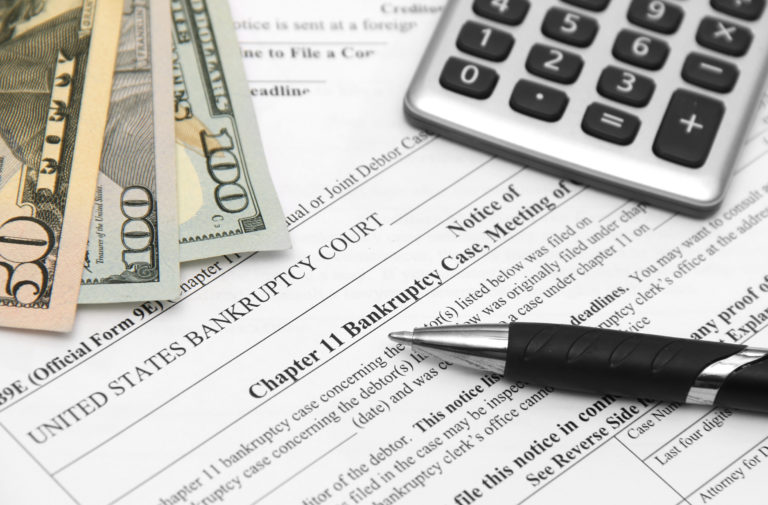
Many people reach a point in their life in which they struggle financially. When finances can become difficult to handle, it can be stressful to try and get them under control. If an individual finds themselves in this situation, it can be beneficial for them to consider filing for bankruptcy to regain control of their financial situation.
Filing for bankruptcy can allow an individual a fresh start in life regarding their finances. People can file for Chapter 7 and Chapter 13 Bankruptcy depending on their circumstances. These options allow debtors to restructure their finances in order to pay back creditors what they owe them. When either of these is filed, there are many different types of debts that will be discharged, or thrown out, at the end of the individual’s case. While this is true for some debts, it is not the case for all of them. There are some debts, known as non-dischargeable debts, that are not thrown out.
Dischargeable Debt
When an individual files for bankruptcy, the term “dischargeable debts” is often thrown around. This means that if a debt is discharged, the individual no longer has to pay it. It also means the creditor who gave the loan cannot try and collect that money any longer. There are several different types of debts that may be discharged after an individual pays off their bankruptcy plan. This may include but is not limited to:
- Credit card debt
- Medical bills
- Lawsuit judgments against the individual
- Obligations under leases and contracts
- Personal loans made by friends, family, and other individuals
- Past due utility bills
Non-Dischargeable Debt
While some debts may be released once a bankruptcy plan is paid off, there are other debts that cannot be ingored. These are called “non-dischargeable” debts. These debts cannot be thrown out through filing for bankruptcy. These debts may include but are not limited to:
- Student loans
- Child support payments
- Alimony payments
- Attorneys’ fees for child custody or support
- Certain types of taxes
- Fraud debts
- Fines or penalties owed to government agencies
- Criminal restitution and other court fines or penalties
- Civil judgments for injuries due to deliberate wrongdoing or driving while intoxicated
Certain non-dischargeable debts are not subject to a hearing. In other cases, some non-dischargeable debts can be discharged if a creditor does not challenge that they are dischargeable.
Contact our Firm
If you or someone you know believes they are in a situation in which they may have to file for bankruptcy, contact the Law Offices of Allen A. Kolber, Esq. today.
If you require the services of an experienced Business Law or Bankruptcy attorney, contact the Law Offices of Allen A. Kolber, Esq. today to schedule a consultation and discuss your options.






